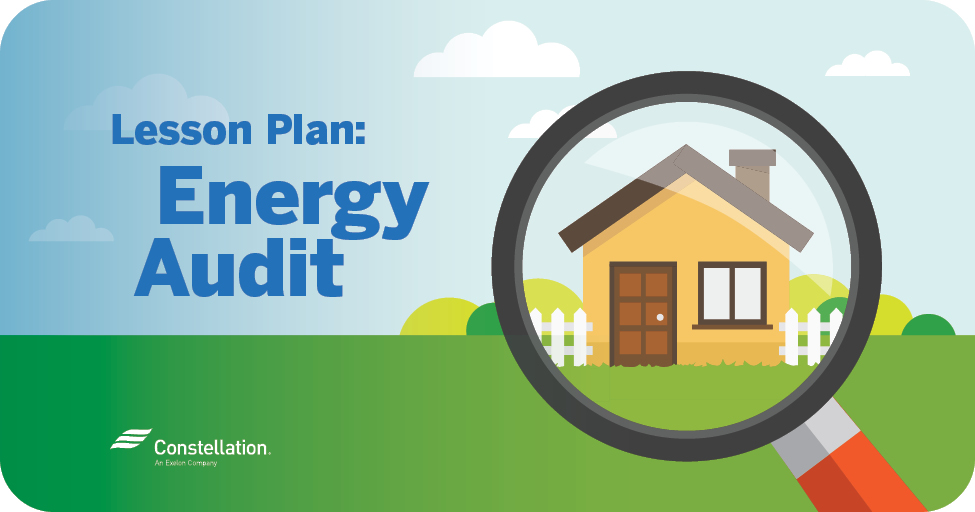We’ve been focused on energy this summer – thinking about the sources of energy we use and how and why we should save energy. Saving energy is good for our environment, and it’s good for our wallets. In this lesson, we’ll take one final look at how we can save a household energy by thinking about our energy using devices, appliances, and systems, how we interact with each of them, and what we could do better. Students will perform a mini energy scavenger hunt called an energy audit where they will survey and quantify key energy-saving and energy-wasting items in the home.
Looking for more home energy activities? We’re pleased to work with The National Energy Education Development Project (NEED), to deliver these fun activities. Be sure to check out their library of resources, and their specialized collection of energy-themed distance/at-home learning activities. All activities are totally free for use at home or school, and accessible by visiting their website, www.NEED.org.
- Background reading: School Energy Inspectors, Energy Use
- Printable Worksheet: Saving Energy Selfie
- Background reading: Building Science
- Printable Activity: Energy Consumption Collage
People always want to know which source of energy is the best source of energy, especially when it comes to being kinder to our environment. What if the best source of energy is actually not things, but PEOPLE. How people use their energy and the energy decisions they make every day impact how much of each energy source we use to generate electricity and power our lives. Keeping tabs on our own personal energy consumption is a big part of how energy is consumed. When we make changes to our behaviors to use less energy we call this energy conservation. Energy conservation could include taking a bus instead of driving your own personal car, turning off the lights when you leave the room, and choosing to open the windows and blinds for a breeze on a warmer day. Sometimes saving energy can also incorporate new technologies. When we make changes to how we use energy by upgrading our equipment and technology, this is called energy efficiency. Energy efficiency might be switching your light bulbs to LEDs, or replacing an old refrigerator with a newer model that uses less energy. Some appliances and equipment, like dryers, microwaves, and ovens might never be considered “efficient,” because they are made to just heat things up, however, we can replace our old ones with newer ones that use less energy to do the job. Use the Audit Sheet to survey your home like professional! Search your home to identify examples of efficiency and conservation in practice, and opportunities for improvement. Take a look at your bill as a family and see if any of the changes you make might impact your utility bills!
Additional support links:
- https://switchon.org/ (Free signup for all video clips)
- https://www.eia.gov/energyexplained/
- https://www.eia.gov/kids/
Fall Lesson Plans:
- Lesson Plan 1: Biomass
- Lesson Plan 2: Hydropower
- Lesson Plan 3: Water Conservation
- Lesson Plan 4: Climate Change and Energy Conservation
- Lesson Plan 5: Heating and Cooling
- Lesson Plan 6: Smart Grids and Microgrids
Spring Lesson Plans:
- Lesson Plan 1: Energy Basics and Energy Sources
- Lesson Plan 2: Electricity and Electricity Generation
- Lesson Plan 3: Conservation at Home
- Lesson Plan 4: Wind and Natural Gas
- Lesson Plan 5: Solar Energy
- Lesson Plan 6: Understanding Your Energy Bill
- Lesson Plan 7: Measuring Your Electricity Consumption
- Lesson Plan 8: Lighting and Appliances
